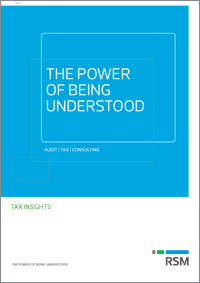In order to deal with the financial and economic difficulties faced by Belgian companies in the context of the COVID-19 pandemic, the federal government adopted a series of support measures to promote the liquidity and solvency of companies and the self-employed in Belgium.
These measures mainly include the so-called « carry-back »-measure (retrospective transfer of losses incurred as a result of the health crisis) and the reconstruction reserve. However, the second measure was only adopted a few months after the carry-back measure. The reconstruction reserve was only in November 2020 approved by the federal parliament.
WHAT EXACTLY IS THIS ABOUT?
The companies subject to corporate tax and non-residents/legal entities can exempt their profits – entirely or partially – related to the taxable period of 2021, 2022 or 2023 (i.e., 2022, 2023 or 2024) by establishing a tax-free reserve.
The reconstitution reserve is limited and cannot exceed the amount of the suffered accounting loss at the end of the financial year 2020 (or 2021, in case it concerns a fractional year). E.g., a company that suffers an accounting loss of one million euros on 31/12/2020 can in principle only establish a reconstruction reserve amounting to this amount.
In addition to this limitation, it should also be noted that the reconstruction reserve is, in any case, limited to a maximum of 20 million euros.
WHAT CONDITIONS NEED TO BE FULFILLED?
First, the company must respect the intangibility condition when establishing the reconstruction reserve. It must be included and held in one or more account, different from the liabilities (as it is the case for tax-free reserves).
Subsequently, the company may not have held a direct participation in a company located in a tax haven or made payments of more than EUR 100.000 to a (natural or legal) person located in a tax haven. This condition applies in the following period: between March 12th, 2020 and the end of the taxable period during which the company benefits from the reconstruction reserve.
Furthermore, the company may not have paid dividends, purchased own shares or implemented a capital reduction in the period from March 12th, 2020 up to and including the day of filing the corporate income tax return in which the company claims the establishment of the reconstruction reserve.
Lastly, the new legislation prescribes that the exemption of the reconstruction reserve is dependent on the condition of continued employment. Code 620 – Remuneration and direct social benefits will have to be checked
every year. The amount of the salary costs may not be less than 85% of the amount registered on the same code on the closing date of the financial year ending in 2019. If that’s not the case, the reconstruction reserve will be taxed up to the difference between the amount registered in 2019 and the amount below the 85% threshold. By way of example, the company with a salary cost of EUR 10.000 on December 31st, 2019 and whose salary cost has decreased to EUR 5.000 on December 31st, 2022 (i.e., less than 85% of EUR 10.000) will have to decrease its exempted reserve by EUR 3.500 (being EUR 8.500 – EUR 5.000).
It should be noted that in the event of a future dividend payment by the company, the reconstruction reserve will be reduced by the amount paid as a dividend. For example, a company which established a reconstruction reserve of EUR 50.000 during tax year 2022, will have to reduce the tax-free reserves with EUR 10.000 and adjust these to EUR 40.000 in case that same company pays a dividend of EUR 10.000 during tax year 2023 (i.e., after the period during which the reserve was reconstructed).
There is no cut-off date foreseen for the period of the recognition of the reconstruction reserve on the liabilities side of the balance sheet.
WHICH COMPANIES ARE EXCLUDED?
The following companies cannot establish a reconstruction reserve:
- The investment companies
- The cooperative private equity companies
- The maritime shipping companies
- The companies that can be considered companies in difficulties on March 18th, 2020
In order to be able to claim the profit exemption related to the reconstruction reserve, the taxpayer must enclose a statement – to the model of the Royal Decree – to the tax return of the tax year in which the exemption is applied.
In case you prefer more information regarding this topic or require assistance with the establishment of the reconstruction reserve, do not hesitate to contact the Tax-team of RSM Belgium ([email protected]).
RSM Intertax

